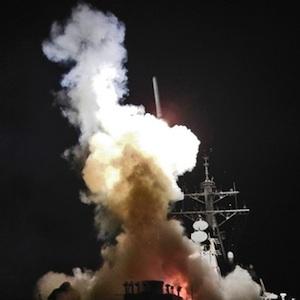Humanitarian Intervention In Libya – Analysis
By IPCS
By Gurmeet Kanwal
The ongoing struggle of people across the Arab world to get rid of military dictators and tyrannical monarchies has led to a new debate about the efficacy of the emerging doctrine of humanitarian intervention. For example, should the international community go beyond the imposition of a ‘no fly zone’ and put boots on the ground to overthrow Colonel Gaddafi’s regime in Libya? A UN Security Council resolution approved the imposition of a no fly zone on 17 March but ruled out the deployment of a “foreign occupation force.” The Western Alliance has launched air and missile strikes on Libya – ostensibly to protect the population against attacks from Gaddafi’s forces. However, the strikes are clearly designed to bring about a regime change.
John Mackinlay of King’s College, London, has argued that in the “complex emergencies which increasingly threaten security in Eastern Europe, Central Asia and Africa, international response mechanisms have failed from the outset to take a realistic approach that reflected the needs of the crisis… due to vested interest, conservatism and a lack of vision beyond the narrow limitations of national and professional interest.” With some exceptions, most nations today agree to join an international intervention effort only when their own national interests are served by intervening and rarely so where the cause is humanitarian. The world had failed to intervene to stop the genocide in Rwanda.

John Hillen, a policy analyst at the Heritage Foundation, a US think tank, has suggested the following criteria for future US military interventions: should defend national security interests; should not jeopardise the ability of the US to meet more important security commitments; should strive to achieve military goals that are clearly defined, decisive, attainable and sustainable; should enjoy Congressional and public support; and, the armed forces must be allowed to create the conditions for success.
Notably, John Hillen makes no reference to the need to abide by international law before deciding to intervene. Recent US interventions in Kosovo and Iraq have clearly established that the US-led “coalition of the willing” chooses to intervene militarily purely to further perceived national interests. Clearly, when national interests are at stake, there are no qualms about violating international law. Such a muscular approach to the conduct of foreign policy is extremely damaging to international stability and is bound to encourage similar adventurism elsewhere in the world.
The emerging doctrine of intervention is built around the ability of the international community, mainly the US-led Western alliance, to impose its collective will in order to restore a deteriorating situation or to prevent a nascent conflict from burgeoning into full blown war with wider ramifications. The international community’s right to intervene may manifest itself in many ways. It may begin with a warning through a UN Security Council resolution. A military embargo and economic sanctions may follow. Where applicable, a no fly zone or even a naval blockade may be enforced. Failing all other means, the international community may sanction the use of military force. The overwhelming belief among members of the international community is that when this happens, it must first be approved by a UN Security Council resolution.
Justifications of the right to intervene militarily, which are being increasingly propagated and are finding reluctant acceptance among some countries forming part of the Western alliance, include: defence of democracy and the prevention of the excessive curtailment of a people’s right to participate in decision making; prevention of severe violation of human rights of a people by a totalitarian regime; protection of minority groups from severe repression; prevention of acute environmental degradation; and, prevention of possible attempts to acquire or develop weapons of mass destruction.
In addition to these situations justifying intervention, some of the following happenings may also warrant an international response in the future, depending on the prevailing circumstances, provided the response is unambiguously supported by a majority of the members of the UN Security Council or the General Assembly: the persecution of a people due to religious affiliation; aiding and abetting of terrorists, narcotics smugglers and crime gangs by rogue regimes; the wilful repeated violation of World Trade Organization (WTO) quotas and undercutting of tariffs through unfair trade practices, excessive interference with the production facilities, movement and sale of goods and the transfer of funds by Trans-National Corporations (TNCs); plausible threat to paralyse or interfere with international communications, navigation, remote sensing and surveillance satellites and ground control facilities, interference with the Internet and subversive attempts to infect its software and, malicious intervention in and manipulation of the international banking system.
However, regardless of the contours of the emerging doctrine of intervention, it must remain a cardinal principle of international relations that the territorial integrity of each member state of the UN must be collectively guaranteed by all the other member states. The non-observance of this collective security imperative can only lead to anarchy and the rule of the jungle where might is right. This can be done only by strengthening the UN system to emerge as the sole arbiter of the need for intervention. Individual nation-states must not be permitted to assemble “coalitions of the willing” to intervene anywhere in the world to further their own necessarily narrow national interests.
As Gaddafi’s forces were clearly targeting civilians, the ongoing intervention is justified. Surgically precise air and missile strikes should continue to be employed to achieve limited military objectives. Emphasis should be laid on the minimum use of force. However, all out efforts must be made to prevent collateral damage, with particular reference to civilian casualties and property.
Gurmeet Kanwal
Director, Centre for Land Warfare Studies (CLAWS)
email: [email protected]
